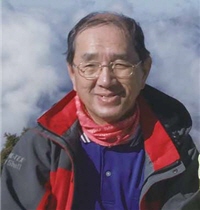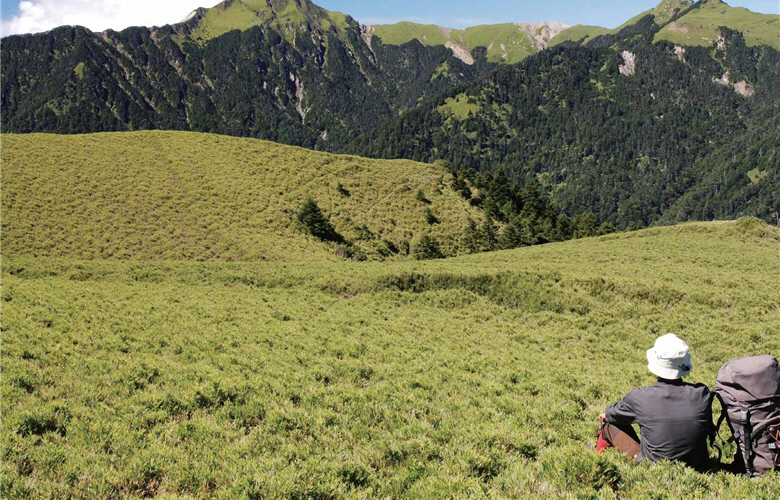
Chosen as one of the 10 Preservation Ambassadors of YSNP, former president of Chinese Taipei Mountaineering Association Zhu-xian Weng grew up in Keelung and has been a good swimmer since little. He once served in the Navy in 1958, when the R.O.C. and the P.R.C. were still under arms. After retiring from the military, he worked in CSBC Corp. Taiwan, and has gradually cultivated a strong interest in the Nature.
“My elementary school was located on the mountainside, where I naturally felt intrigued by things in the mountains,” Weng recalled. And thanks to continual exposure to the Nature, he has been blessed with a muscular and healthy body, as well as a look younger than he really is.
Succinct about his personal achievements, Weng elaborated mostly on his ideas and concerns over the mountains in this interview. For him,mountains and his fellow mountaineers are more important than any greatness of his. What really matters is his love for and devotion to the mountains and his attitude toward life. He has never been wavering over his determination to protect the mountains in Taiwan. “Somewhere in there a secret garden that eases your troubles can always be found,”smiled Weng.
How many such “secret gardens” are hidden in the mountains on this 36,188-km² small island? Weng pointed out that in Taiwan, at high and low altitudes alike, or even in winter, there is always an abundance of flora and fauna. “Despite the fact that Taiwan’s area only accounts for 1/10000 of the total land of the Earth, the average number of species per area unit is 100-fold to that of the world! Its beauty is truly stunning when looked at from above high in the sky. And if all the cubic area of Taiwan’s mountains were translated into plane surface area,then Taiwan would be much larger than it seems. This well proves that Taiwan enjoys an unrivaled status in the world in terms of its resources in the mountains and forests.”
In the Martial Law Era, part of Taiwan’s mountains still remained in mystery and secrecy, which were gradually unveiled by a trend of mountaineering spurred by some prestigious mountaineers. They did more than climbing or hiking but collected valuable data and drew maps of various mountains for later generations of mountaineers. Their contributions are truly respected and appreciated.
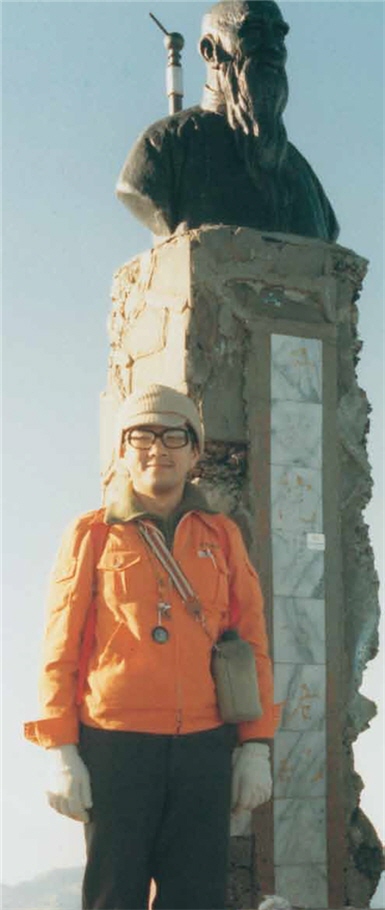
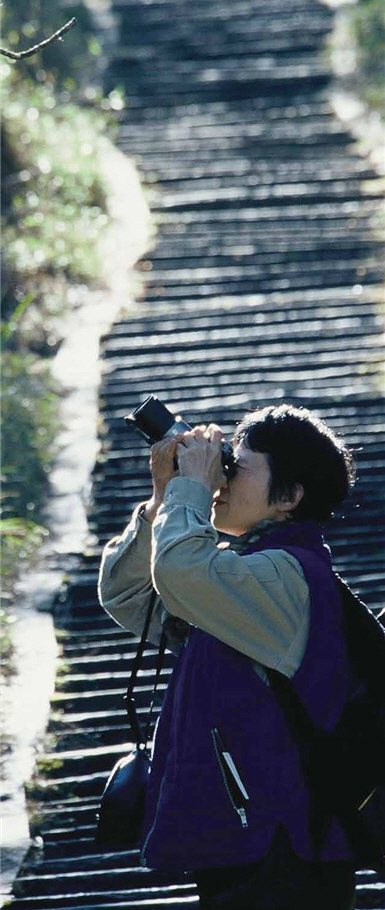
Interview & Text / Jane Chiu
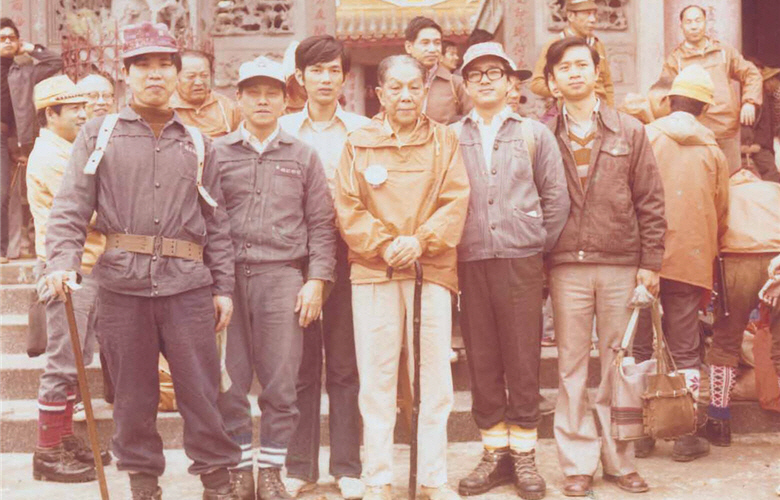
Yet in early days when concepts about environmental protection and ecological conservation were still in its infancy, mountaineers in Taiwan had been stereotyped by the ridicule: “Follow the traces of their wastes, and you’ll never get lost in the mountain.” Now as equipment becomes better and lighter and the disposal of wastes gets easier and smarter, mountaineers do not produce as much garbage as before. “But things like toilet paper, fruit skin and plastics must sure be carried out of mountains as they are slowly- or non-perishable.”
An early start in the trend of mountaineering in Taiwan did not guarantee its continuous popularity. For example, hiking activities along Northern, Central, and Southern Cross-Island Highways, once welcomed among college students back then, lost its attraction as complicated traffic conditions made it dangerous and simply walking without any meaningful context made it boring.
Speaking of how such hiking activities can be revived and better developed, Weng believed a possible answer may be giving it an inspiring theme that symbolizes the spirit of mountaineering, just like the way the 9-day Dajia Matsu Pilgrimage Procession is promoted. He explained that an event like that not only tests participants’ stamina, but passes down cultural heritage, strengthens the bond among people, and even represents a form of the popular International Happy Walking.
Besides the once-popular highway walking, historic trail hiking and mountain hiking have been the hot choices among mountain lovers in Taiwan. As the latter accounts for 80% of all mountaineering activities in Taiwan, and most of its venues are the historic trails and expanded existing trails, Weng is basically against building any more new trails in order to protect the mountains and forests.Even if new ones have to be built, they should be done by extending existing ones with moderate construction and renovation. Current trails in Taiwan are mostly those built in early times or in Qing Dynasty or during Japanese rule for such purposes as hunting, transportation, trade, and aborigine administration.
Most of the trails located in national parks are the ones formerly used by the aborigines. They would more or less collapse or wear out due to factors related to altitude,climate, etc., which poses challenges to mountaineering.“Thanks to the thoughtfulness of the national parks and Forestry Bureau, lots of stairs, loading bridges and safety devices have been set up in many of the steeper parts along the trails,” Weng recognized the efforts from the authorities.
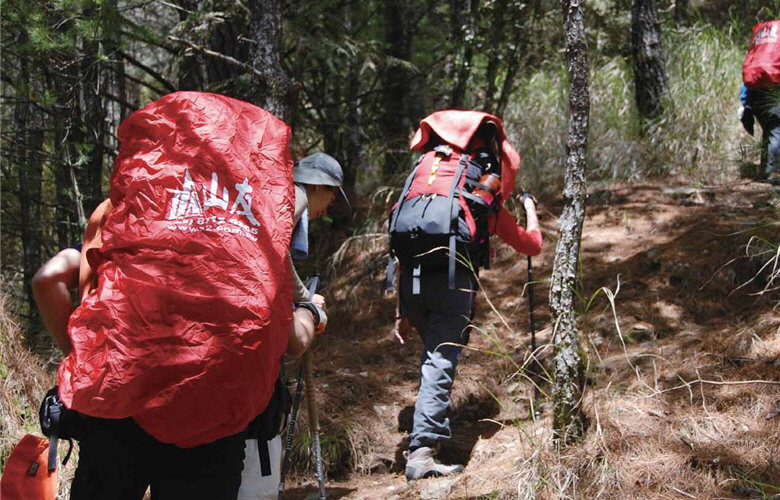
With the increasingly apparent demographic aging in Taiwan, people should learn to focus more on “sightseeing” than on “conquering” the mountains, so as to fully enjoy the fun of mountaineering. “You don’t have to get to the top of the mountain to view all those great landscapes and seascapes. Just take it easy and enjoy yourself by appreciating the scenery and the biodiversity of the mountains instead of thinking about getting to the peaks.”
A visit to any of the scenic spots, such as Yansheng Trail at Wuling, or Cika Cabin or Syuejian Recreation Area in SPNP; Lulin Mt. and Linzhi Mt. at Tataka in YSNP; Shakadang Trail in TNP; some trails in YMSNP, with a few stops for some nice rest,picnics or chats with family and friends would be truly gratifying and physically endurable. Serious mountain climbing such as challenging Taiwan’s Top 100 (peaks over 3,000 m), on the other hand, are only for those who really long for thrills and adventures.
In promoting a nationwide trend of mountaineering and hiking,Weng suggested that many trails be integrated and connected by using pollution-free electric cars as shuttles between trails. Also important is the classification of the age and stamina level for mountaineers and hikers to better choose the activities that suit them, and cultivate healthier attitudes of self-discipline and selfmonitoring.
One essential issue in promoting nationwide hiking activities is the education on the etiquette toward the mountains. Hiking is not only an opportunity to experience the Nature and strengthen one’s body and mind, but also one to learn from the Nature and care about it and all life forms by adhering to the 7 principles: no obtrusion, no wandering, no littering, no destruction, no fire-making, no disturbance, and no clamoring.
Some selfish human behaviors that are unfriendly to the Nature really bother Weng. “Some mountain cabins would offer karaoke to lure and please more tourists. But the loud singing and noise have ruined the quietness and harmony in the mountains.” Besides, some people tend to bring their pets along into the mountains, and cause a disturbance to the wild animals, which are scared of and may contract diseases from those domestic animals in the cities. “Some people would even chip off a piece of stone from the rock at the peak of a mountain as a memento,” fumed Weng.“What people should do is to take the chance to enjoy the bird chirps, cool breeze, and pleasant walks rather than carry their boomboxes, beers and deluxe meals into the mountains and produce all that noise and garbage.”
Keeping in mind the concepts of ecological conservation and environmental protection is the due respect and basic attitude people should have not just during ecotourism but also in any forms of mountaineering and hiking. Weng reminded that the sheer presence of humans in the mountains constitutes an intrusion to the Nature. This is why protected areas and capacity limits for visitors are set up by national parks to constrain human impact. All human beings must be respectful, protective and well-behaved to the Nature because it is our most valuable treasure.
![]()
Formerly the president of Chinese Taipei Mountaineering Association, Weng currently is the consultant for the planning and strategy development and execution of ecotourism in Taiwan's alpine national parks, CPAMI; the Preservation Ambassador of Yushan National Park; member of the promotion team for national trail system, Council of Agriculture; and member of the committee of nationwide fitness, Chinese Taipei Olympic Committee. He has been dedicated to Taiwan's mountaineering for over 30 years, and has proposed the concepts of “love the mountains, protect the mountains, and clean the mountains.”
